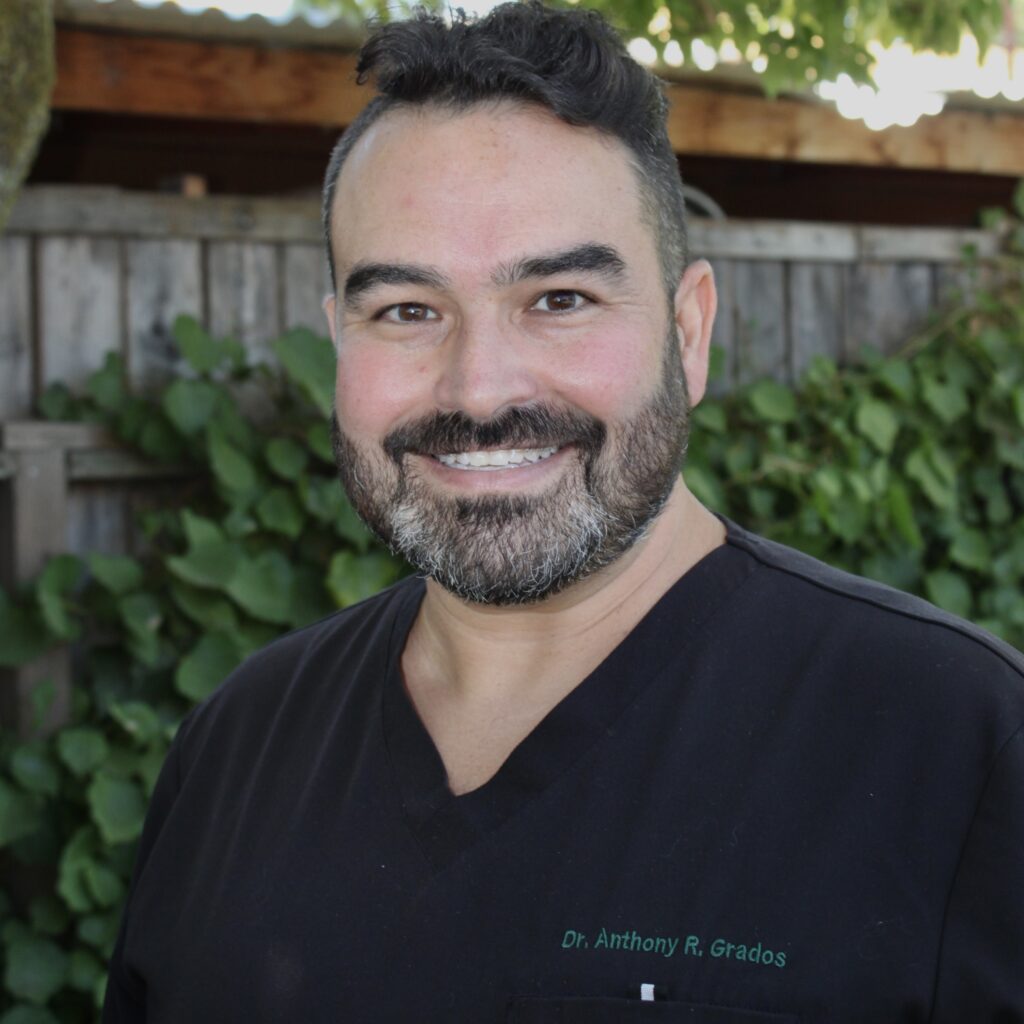What is Gum Disease?
Gum disease is caused by one of dentistry’s all-too-familiar bad guys: plaque. This sticky bacteria can often be kept under control with great brushing and flossing habits and regular dental cleanings. However, if left to build up for too long, plaque can inflame your gums, cause them to separate from your teeth, and harden into tartar (called calculus in dentistry), which can cause even more damage.
Gum disease is a progressive problem that gets worse the longer it goes untreated. Over time, the inflammation of your gums can damage the ligaments that hold your teeth in place, and even wear away the bone sockets that support your teeth.
This irreversible bone loss from gum disease is the number one cause of tooth loss in adults. Advanced periodontal disease has also been linked to increased risks for many health problems, including heart disease, diabetes, pancreatic cancer, and rheumatoid arthritis.
Is It Possible to Get Effective Gum Disease Treatment Without Surgery?
In many cases, we can stop and even reverse many of the effects of gum disease with scaling and root planing, sometimes called a deep cleaning. This specialized approach completely removes hardened build-up above and below the gums, giving your immune system relief from chronic inflammation and allowing your gums to heal. All without any scalpels or stitches.
To make your scaling and root planing as comfortable as possible, we’ll thoroughly numb the area before starting. From there, we’ll gently break up and remove both hard and soft deposits to create a smooth and healthy surface where the gums can reattach.
If you have localized gum disease in just one area, we may be able to complete your treatment in one sitting. However, it is commonly necessary to split the mouth into sections and clean one area at a time. That may mean cleaning half the mouth and then returning to have the other half treated on a different day.
There are some cases when it’s best to see a periodontist near you for more advanced treatments like LANAP or osseous surgery. We proudly partner with skilled oral surgeons and periodontists who can offer these advanced gum disease treatments when necessary.
Our Gum Surgery Solutions
In addition to gum disease treatments that remove bacteria, the Forestville Family Dentistry team also offers surgical solutions to protect your smile and keep it looking beautiful.
Frenectomy
Frena are bands of tissue that connect the lips and cheeks to the gums and connect the underside of the tongue to the floor of the mouth. In many people, the frena can be too short or too tight, which can create functional difficulties that interfere with normal speech and comfortable eating.
Tight frena can also pull on the gums and compromise their stability. Over time, this can cause problems like gum recession and even cause the teeth to shift.
Frenectomy is the process of releasing these bands of tissue to relieve pressure on the gums and allow the lips and tongue to move freely through a normal range of motion. We provide laser frenectomy to relieve tongue tie and lip tie without scalpels or sutures. While this is frequently performed in early childhood, many adults can also benefit from the procedure.
Gingivectomy
There are many conditions that can cause the gums to grow beyond their normal position. Certain medications, health conditions, and orthodontic braces are three of the most common reasons the gums may become overgrown.
This can create areas where plaque and food can become trapped, further irritating the tissue and making the problem worse.
To correct this, we provide laser gum contouring, also called gingivectomy. The Solea laser can trim away excess gum tissue, creating a balanced and beautiful smile. Laser gingivectomy is much more comfortable than the traditional approach, and heals very quickly with minimal discomfort.
Crown Lengthening
Similar to gingivectomy, crown lengthening involves recontouring the gumline. However, rather than reversing overgrowth of the gums due to gum disease or other conditions, crown lengthening focuses on exposing more of the tooth surface for primarily cosmetic purposes.
If you feel like you have a “gummy smile,” or you have certain teeth that look undersized because of your gum line, crown lengthening can improve your smile aesthetics.
Depending on how the gums lay over your teeth, crown lengthening is frequently paired with other treatments such as porcelain veneers or dental crowns to create an ideal appearance.
We’re Here to Care for Your Whole Smile, Start to Finish
At Forestville Family Dentistry, we’re proud to provide comprehensive care for your teeth and gums. We also want you to know that we’re with you every step of the way, including your recovery and healing.
After gum surgery or a deep cleaning, it’s common to feel soreness for a couple of days and you may have sensitive teeth for around a week. You may also experience some gum swelling, tenderness, and/or bleeding. In order to combat these symptoms, as well as prevent infection, we may recommend oral medications or mouth rinses. We’ll also give you detailed instructions for how to care for your teeth as your gums heal.
Several weeks after your surgery, we will schedule a follow-up visit to see how your gums are healing and measure the size of the affected pocket(s) when appropriate. Depending on the pocket depth, we may recommend additional treatments. To keep gum disease from potentially reoccurring, be sure to practice good dental habits, including brushing your teeth twice every day, flossing daily, and staying up to date with regular cleanings and periodontal exams.
If you’re experiencing gum problems and think gum surgery or a deep cleaning may be right for you, please don’t hesitate to reach out to us so we can talk to you about your options and keep your smile strong and healthy.

